#marriage equality in asia
Explore tagged Tumblr posts
Text
As legalization of same-sex marriage inches closer to reality in Thailand, the Pew Research Center looked into attitudes across the continent.
***
From the Pew Research Center:
Same-sex marriage is an active legal and social issue across South, Southeast and East Asia. In the wake of several court rulings on the issue across Asia in the past year, we analyzed data from three recent Pew Research Center surveys to see how people in the region feel about legalizing same-sex marriage.
A median of 49% of adults in 12 places in Asia say they at least somewhat favor allowing gays and lesbians to marry legally. Another 43% say they oppose legal same-sex marriage, according to surveys conducted between June 1, 2022, and Sept. 17, 2023.
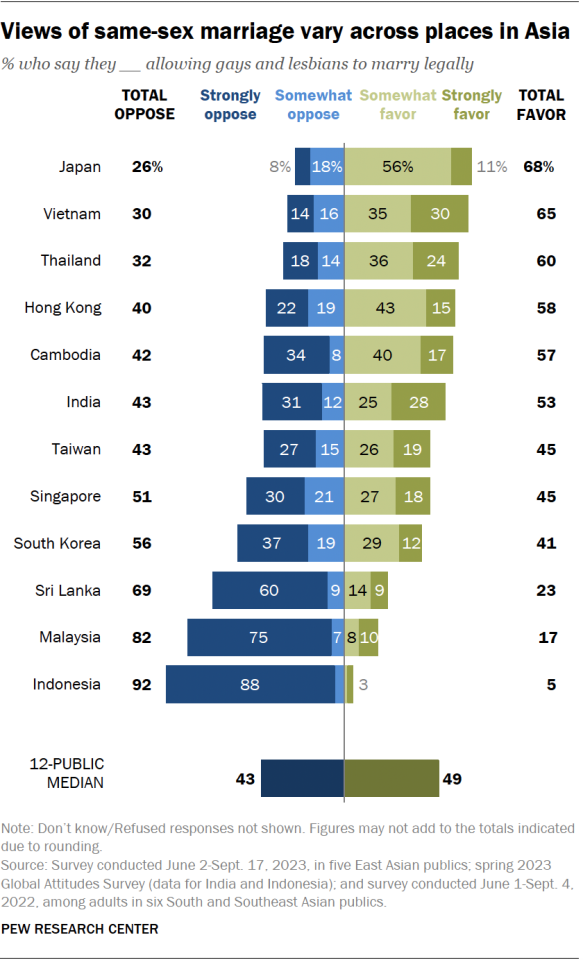
Views toward same-sex marriage are most favorable in Japan, where nearly seven-in-ten (68%) say they at least somewhat favor allowing gays and lesbians to marry legally. Japan, the only Group of Seven member that does not legally recognize same-sex couples, has been facing internal and external pressure to do so.
In Vietnam, views on legalizing same-sex marriage are similarly positive – 65% of adults support it. Roughly six-in-ten in Hong Kong (58%) and Cambodia (57%) also favor legal same-sex marriage. A Hong Kong court recently ruled that same-sex couples hold equal inheritance rights, though Hong Kong law does not allow them to marry.
Same-sex marriage was an issue on Thailand’s campaign trail this year. Six-in-ten adults there favor allowing gays and lesbians to marry legally. Around a third of Thais oppose it.
In India, where the Supreme Court recently rejected a petition to legalize same-sex marriage, about 53% of adults say they favor allowing gays and lesbians to marry, while 43% oppose it. (The survey was conducted prior to the ruling.)
In Singapore, no clear majority favors (45%) or opposes (51%) same-sex marriage. Same-sex marriage is not legal in Singapore, and its parliament amended the constitution last year to prevent legal challenges to the definition of marriage.
And in Taiwan, roughly equal shares say they support (45%) and oppose (43%) same-sex marriage. Taiwan is the only place in Asia where same-sex marriage is legal.
In a handful of places in Asia, majorities oppose legal same-sex marriage. In Indonesia, 92% say they oppose it, including 88% who strongly oppose it. Large majorities in Malaysia (82%) and Sri Lanka (69%) also oppose it.
And in South Korea, a slight majority (56%) say they oppose legal same-sex marriage, while 41% favor it. Lawmakers proposed South Korea’s first same-sex marriage bill earlier this year.
Views of same-sex marriage by religion
Though different places have vastly different religious demographics, the religiously unaffiliated tend to be among the most likely to support same-sex marriage.
In the six places where enough religiously unaffiliated individuals were surveyed to analyze their responses separately, half or more of the religiously unaffiliated support legal same-sex marriage. That includes 73% in Japan.
Meanwhile, Muslims and Christians are often, but not always, among the least likely to support it. For instance, while roughly six-in-ten religiously unaffiliated Singaporeans favor same-sex marriage, fewer than a third of Christians and Muslims do.
In Indonesia and Malaysia, the two Muslim-majority places surveyed, Muslims report the lowest support for same-sex marriage of any religious group in any place surveyed. Only 4% of Indonesian Muslims and 8% of Malaysian Muslims support it.
Views of same-sex marriage by age and gender
Across most places surveyed, younger adults are more likely than their older counterparts to support same-sex marriage. This difference is most extreme in Taiwan: 75% of Taiwanese adults under 35 favor it, compared with 33% of those 35 and older.
In five places surveyed, women are more likely than men to support legal same-sex marriage. For example, in South Korea, 48% of women say they favor it, compared with 33% of men. And in Cambodia, 62% of women favor it, compared with 50% of men. In other places surveyed, there are no significant differences by gender.
Note: Here are the questions used for the analysis, along with responses, and the survey methodology.
Sneha Gubbala is a research assistant focusing on global attitudes research at Pew Research Center.
William Miner is a research assistant focusing on religion at Pew Research Center.
24 notes
·
View notes
Text
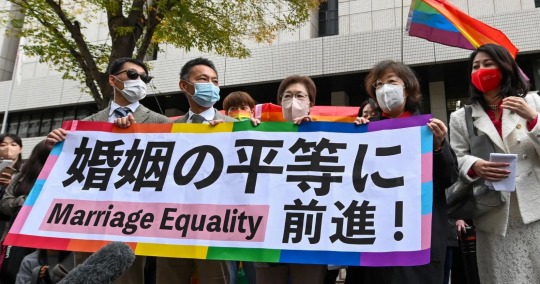

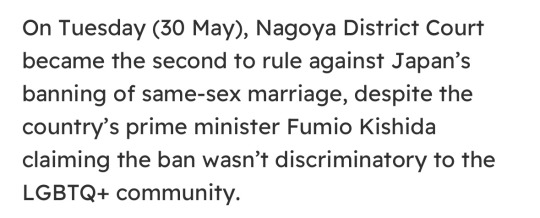
Source
Some good news!
#lgbt#lgbtq#japan#asia#current events#good news#news#lgbt rights#equality#pride month#gay rights#gay marriage#marriage equality#pride
35K notes
·
View notes
Text
"In short: Thailand's Senate has approved a bill legalising same sex marriage in the South-East Asian country.
It will afford same-sex couples practical benefits such as being able to have children through IVF and make emergency medical decisions for their spouse.
What's next? The first weddings may take place later this year, 120 days after the law is announced in the Royal Gazette.
Thailand has become the first nation in South-East Asia to legalise same sex marriage, with the country's Senate approving the landmark bill this afternoon.
The legislation was expected to pass after it cleared the country's House of Representatives in a near-unanimous vote in March.
Despite Thailand's bustling gay bars and prominent transgender community making it a mecca for LGBTQ+ tourists, until now local same-sex couples there have been unable to marry.
The law will take effect 120 days after its announcement in the Royal Gazette, so the first same sex weddings may take place later this year.
Couples who have been waiting years have hailed the move as a historic moment that will afford them rights only reserved for spouses.
A Lifechanging Law
Photos of Anticha and Worawan [including the article picture], dressed in floor-length white gowns and trailed by rainbow flags, getting married at Bangkok's first Pride Festival two years ago went viral, but they are still not legally married.
Now they will be able to change that, and Anticha Sangchai is elated.
"This will change my life and change many Thai people's lives, especially in the LGBT community," she said.
"It is a historical moment and I really want to join with my community to celebrate this moment.
"I want to send a message to the world that Thailand has changed. Even though there are still many issues, this is a big step for us." ...
There were an estimated 3.7 million LGBT people in Thailand in 2022, according to LGBT Capital, a private company which models economic data pertaining to the community around the world.
For the young couple from Bangkok, being able to marry also has very real practical implications.
If they want to have children through IVF, Ms Sangchai says they will need a marriage certificate first.
"I am quite concerned about the time because we are getting older every day, and the older you get the more difficult it is to have a healthy pregnancy," she said.
"So we've been really wanting this law to pass as soon as possible."
Cabaret performer Jena is excited Thailand's laws are finally catching up with the nation's image...
She too had worried about the practical implications of being unable to marry.
"For example, if myself or my partner had to go to hospital or there was an accident that needs consent for an emergency operation, without a marriage certificate we couldn't sign it," she said.
She now wants the government to move forward with a law to allow transgender people to amend their gender on official documents." ...
An Economic Boost?
Thailand has long been famous for LGBTQ tourism and there are now hopes this new law could allow the country to cash in on the aging members of the community.
Chaiwat Songsiriphan, who runs a health clinic for people in the LGBTQ community, said laws preventing same sex marriage were the last barrier holding the country back from becoming a gay retirement hub.
[Note: They do not just mean for rich westerners; Thailand as a gay retirement hub would probably appeal most to and definitely benefit LGBTQ people from throughout Asia.]
"Thailand has an LGBTQ-friendly environment since Thai culture is quite flexible," he said.
"One of my foreigner friends, a gay friend, told me that when he's in his country he has to pretend to be straight … but when he comes to Bangkok he said you can be as gay as you want.
"When we talk about retirement or a long-term stay for the rest of their lives, what people need is … food, good healthcare services, transportation, homes.
"I think Thailand has it all at a very affordable price."
He said it could help give the country a desperately needed economic boost.
"This will have a lot of benefits for Thailand's economy because when we talk about retirement it's people literally bringing all the money they have earned for the rest of their working lives to spend and invest here," he said.
He said he, like the rest of the community, was thrilled by the news.
"It's not about a privilege, it's just equality," he said.
"We are we also humans, so we should be able to marry the one we love.""
-via ABC Australia, June 18, 2024
#thailand#bangkok#thai#thai culture#southeast asia#marriage equality#gay marriage#gay rights#lgbtq rights#queer rights#ivf#weddings#gay wedding#good news#hope
2K notes
·
View notes
Text



x
#Thailand#Thai politics#Thai#same sex marriage#marriage equality#lgbt#lgbtqia#queer rights#human rights#marriage#southeast asia
23 notes
·
View notes
Text
KEEP FIGHTING, Y’ALL -- the creators and writers are fighting, and so can we!
(That means our online commentary can focus less on ships and more on politics, giggles -- but it’s true.)
Seeing all the hot takes within the last 24 hours about Step by Step's commentary on the BL industry and the aftermath, and these shows might be all fun and games for most of us, but I pray some of y'all are going as hard in the streets for LGBTQIA rights and equality as y'all are going in these posts about ships.




These shows have something to say, so hopefully everyone has their listening ears on.
What if instead of getting mad at each other, we got mad at the oppressive system that continues to maintain unjust laws and restrict people from basic rights? Keep that energy to fight the power. Go read @waitmyturtles and @telomeke quick post about the changing political landscape fighting for marriage equality in Thailand and find ways to support them.
264 notes
·
View notes
Text
Donald Padgett at The Advocate:
The king of Thailand signed a new law recognizing marriage equality, the government announced in its official Royal Gazette on Tuesday, Le Monde with Agence France-Presse reported. With the royal ascent of King Maha Vajiralongkorn, Thailand became Southeast Asia’s first country and only the third country in Asia to recognize marriage equality. The new law will take effect on January 22, 2025. “To all the love,” Prime Minister Paetongtarn Shinawatra posted to X Twitter. “Congratulations on everyone’s love.” The new law amends the country’s civil code and ensures same-sex married couples receive full legal, medical, and financial rights, as well as full inheritance and adoption rights. The new law also amends the civil code to use gender-neutral rather than binary language. The law was passed by the country’s senate on June 18 by a vote of 130 to 4 and was the signature legislation of former Prime Minister Srettha Thavisin, a vocal supporter of the LGBTQ+ community in Thailand.
[...] Thailand joins Nepal and Taiwan as the only countries in Asia recognizing marriage equality when the new law takes effect next year. Taiwan legalized marriage equality in 2019 and Nepal followed in 2023.
With King Maha Vajiralongkorn granting royal assent to the bill legalizing marriage equality in Thailand, they become the first Southeast Asian country to legalize marriage equality.
See Also:
LGBTQ Nation: Thailand becomes first Southeast Asian country to legalize marriage equality
#Thailand#Marriage Equality#LGBTQ+#World News#Southeast Asia#Paetongtarn Shinawatra#King Maha Vajiralongkorn
8 notes
·
View notes
Text
Taiwan has just legalized adoption for same-sex couples granting them full-adoption rights:
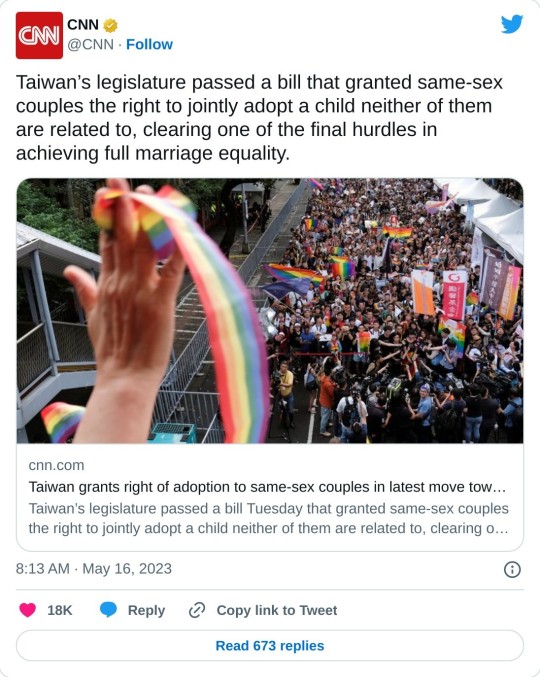
#lgbtq#taiwan#taiwan news#same sex marriage#marriage equality#adoption rights#lgbtq news#asia#asia news
104 notes
·
View notes
Text
4 notes
·
View notes
Text

"Phuket & Krabi: The ultimate Thai island-hopping adventure! 🏝️✨ #ThailandDiaries #IslandHopping"
#tourhawker#traveling#trip#cheap travel#incredibleindia#solo travel#tourism#travel#flights#thailandescape#kashmir#marriage equality#thai politics#southeast asia
0 notes
Text
Good News - June 15-21
Like these weekly compilations? Tip me at $Kaybarr1735! And if you tip me and give me a way to contact you, at the end of the month I'll send you a link to all of the articles I found but didn't use each week!
1. Victory for Same-Sex Marriage in Thailand
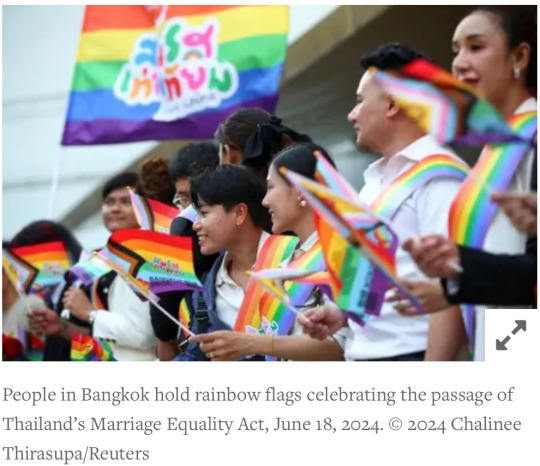
“Thailand’s Senate voted 130-4 today to pass a same-sex marriage bill that the lower house had approved by an overwhelming majority in March. This makes Thailand the first country in Southeast Asia, and the second in Asia, to recognize same-sex relationships. […] The Thai Marriage Equality Act […] will come into force 120 days after publication in the Royal Gazette. It will stand as an example of LGBT rights progress across the Asia-Pacific region and the world.”
2. One of world’s rarest cats no longer endangered

“[The Iberian lynx’s] population grew from 62 mature individuals in 2001 to 648 in 2022. While young and mature lynx combined now have an estimated population of more than 2,000, the IUCN reports. The increase is largely thanks to conservation efforts that have focused on increasing the abundance of its main food source - the also endangered wild rabbit, known as European rabbit. Programmes to free hundreds of captive lynxes and restoring scrublands and forests have also played an important role in ensuring the lynx is no longer endangered.”
3. Planning parenthood for incarcerated men
“[M]any incarcerated young men missed [sex-ed] classroom lessons due to truancy or incarceration. Their lack of knowledge about sexual health puts them at a lifelong disadvantage. De La Cruz [a health educator] will guide [incarcerated youths] in lessons about anatomy and pregnancy, birth control and sexually transmitted infections. He also explores healthy relationships and the pitfalls of toxic masculinity. […] Workshops cover healthy relationships, gender and sexuality, and sex trafficking.”
4. Peru puts endemic fog oasis under protection
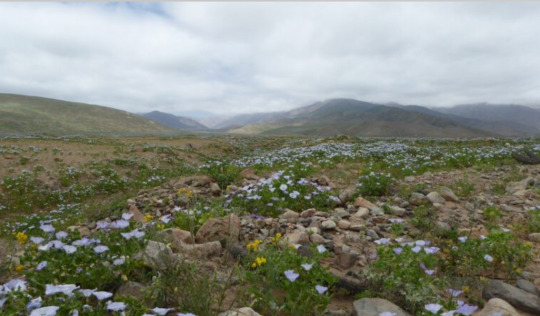
“Lomas are unique ecosystems relying on marine fog that host rare and endemic plants and animal species. […] The Peruvian government has formally granted conservation status to the 6,449-hectare (16,000-acre) desert oasis site[….] The site, the first of its kind to become protected after more than 15 years of scientific and advocacy efforts, will help scientists understand climatic and marine cycles in the area[, … and] will be protected for future research and exploration for at least three decades.”
5. Religious groups are protecting Pride events — upending the LGBTQ+ vs. faith narrative

“In some cases, de-escalation teams stand as a physical barrier between protesters and event attendees. In other instances, they try to talk with protesters. The goal is generally to keep everyone safe. Leigh was learning that sometimes this didn’t mean acting as security, but doing actual outreach. That might mean making time and space to listen to hate speech. It might mean offering food or water. […] After undergoing Zoom trainings this spring, the members of some 120 faith organizations will fan out across more than 50 Pride events in 16 states to de-escalate the actions of extremist anti-LGBTQ+ hate groups.”
6. 25 years of research shows how to restore damaged rainforest
“For the first time, results from 25 years of work to rehabilitate fire-damaged and heavily logged rainforest are now being presented. The study fills a knowledge gap about the long-term effects of restoration and may become an important guide for future efforts to restore damaged ecosystems.”
7. Audubon and Grassroots Carbon Announce First-of-its-Kind Partnership to Reward Landowners for Improving Habitats for Birds while Building Healthy Soils

“Participating landowners can profit from additional soil carbon storage created through their regenerative land management practices. These practices restore grasslands, improve bird habits, build soil health and drive nature-based soil organic carbon drawdown through the healthy soils of farms and ranches. […] Additionally, regenerative land management practices improve habitats for birds. […] This partnership exemplifies how sustainable practices can drive positive environmental change while providing tangible economic benefits for landowners.”
8. Circular food systems found to dramatically reduce greenhouse gas emissions, require much less agricultural land
“Redesigning the European food system will reduce agricultural land by 44% while dramatically reducing greenhouse gas emissions from agriculture by 70%. This reduction is possible with the current consumption of animal protein. “Moreover, animals are recyclers in the system. They can recycle nutrients from human-inedible parts of the organic waste and by-products in the food system and convert them to valuable animal products," Simon says.”
9. Could Treating Injured Raptors Help Lift a Population? Researchers found the work of rehabbers can have long-lasting benefits

“[“Wildlife professionals”] tend to have a dismissive attitude toward addressing individual animal welfare,” [… but f]or most raptor species, they found, birds released after rehabilitation were about as likely to survive as wild birds. Those released birds can have even broader impacts on the population. Back in the wild, the birds mate and breed, raising hatchlings that grow up to mate and breed, too. When the researchers modeled the effects, they found most species would see at least some population-level benefits from returning raptors to the wild.”
10. Indigenous people in the Amazon are helping to build bridges & save primates
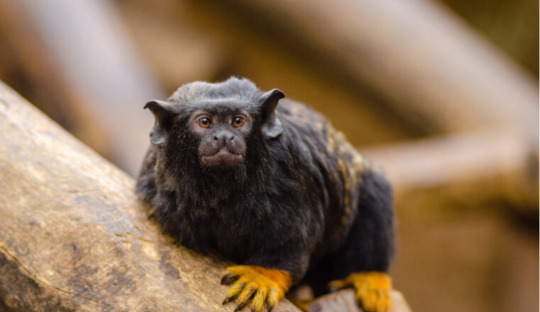
“Working together, the Reconecta Project and the Waimiri-Atroari Indigenous people build bridges that connect the forest canopy over the BR-174 road[….] In the first 10 months of monitoring, eight different species were documented — not only monkeys such as the golden-handed tamarin and the common squirrel monkey (Saimiri sciureus), but also kinkajous (Potos flavus), mouse opossums (Marmosops sp.), and opossums (Didelphis sp.).”
Bonus: A rare maneless zebra was born in the UK
June 8-14 news here | (all credit for images and written material can be found at the source linked; I don’t claim credit for anything but curating.)
#hopepunk#good news#lgbtq#gay rights#gay marriage#same sex marriage#thailand#lynx#big cats#cats#endangered species#endangered#sex education#prison#peru#conservation#habitat#religion#pride#faith#pride month#lgbt pride#compassion#rainforest#birds#nature#climate change#wildlife rehab#wildlife#indigenous
1K notes
·
View notes
Text
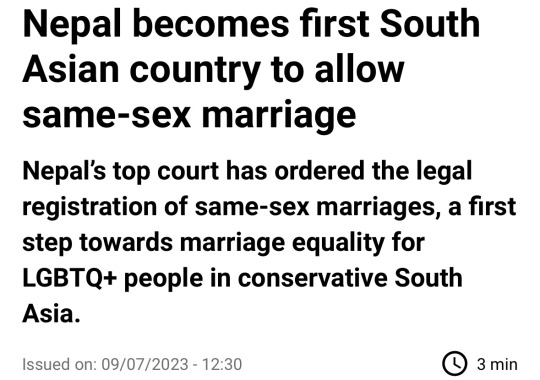


Source
#same sex marriage#lgbt#Lgbtq#lgbt rights#equality#news#current events#Asia#Nepal#good news#Lgbtq rights#government#the left
12K notes
·
View notes
Text
"Lawmakers in Thailand’s lower house of Parliament overwhelmingly approved a marriage equality bill on Wednesday that would make the country the first in Southeast Asia to legalize equal rights for marriage partners of any gender.
The bill passed its final reading with the approval of 400 of the 415 members of the House of Representatives in attendance, with 10 voting against it, two abstaining and three not voting.
Thailand has a reputation for acceptance and inclusivity but has struggled for decades to pass a marriage equality law. Thai society largely holds conservative values, and members of the LGBTQ+ community say they face discrimination in everyday life. The government and state agencies are also historically conservative, and advocates for gender equality have had a hard time pushing lawmakers and civil servants to accept change.
[Note: As always, worth noting that all of those things can be said about the US and plenty of Western countries too. The West isn't magically non-homophobic.]
The bill now goes to the Senate, which rarely rejects any legislation that passes the lower house, and then to the king for royal endorsement. This would make Thailand the first country or region in Southeast Asia to pass such a law and the third in Asia, after Taiwan and Nepal.
The bill amends the Civil and Commercial Code to change the words “men and women” and “husband and wife” to “individuals” and “marriage partners.” It would open up access to full legal, financial and medical rights for LGBTQ+ couples...
The new government led by Pheu Thai, which took office last year, has made marriage equality one of its main goals."
-via AP News, March 27, 2024
#thailand#southeast asia#lgbtq#same sex marriage#queer community#lgbtq pride#queer pride#taiwan#nepal#gay marriage#gay rights#lgbt#marriage equality#good news#hope
1K notes
·
View notes
Text

Update: The marriage equality bill is expected to pass through its final reading in Thailand's upper house of parliament on Tuesday, June 18th. It will then be sent to the king for approval & come into force 120 days after being published in the Royal Gazette. source:
https://www.reuters.com/world/asia-pacific/thailand-moves-pass-same-sex-marriage-law-couple-wait-tie-knot-2024-06-17/
I am so excited for all the Thai people who have been waiting for years to marry their partners. My wife is Thai and dreamed of being able to have our wedding here in Bangkok one day. We're so close to equal marriage in Thailand! 🥹🙏🏿❤️🏳️🌈🇹🇭
2K notes
·
View notes
Text
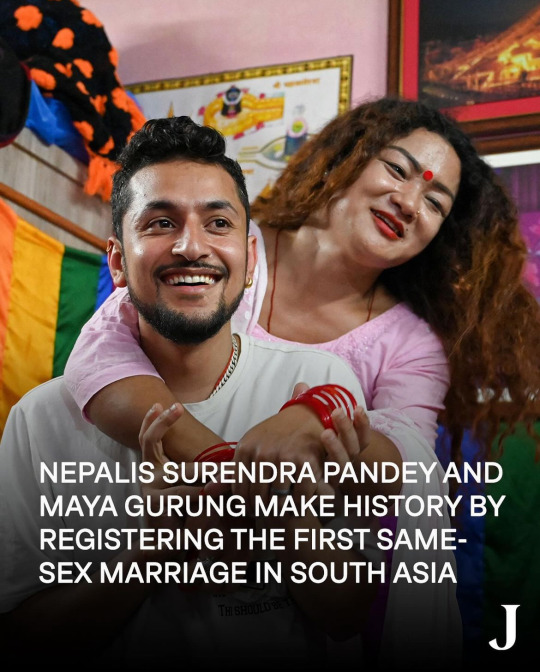
From The Juggernaut: 🏳️🌈On November 29, #Nepal became the first #SouthAsian country to register a same-sex marriage.
“Finally, we are completely together. Finally, we are completely each other’s,” Maya Gurung, 37, told The Guardian.
“We did it. We can have a beautiful future now,” Surendra Pandey, 27, told The Guardian.
In 2007, Nepal’s courts directed the government to amend laws to allow same-sex marriages, but legislators failed to bring any such amendments to Parliament. In June, Nepal’s Supreme Court issued an interim order that recognized the registry of same-sex marriages since legislators had failed to amend marriage laws.

Gurung and Pandey were married in a Hindu wedding in 2017. Gurung was born a man and identifies as a trans woman; Pandey was born a man and identifies as a man. But Nepal prohibits citizens from changing the sex assigned at birth on official documents, so the couple couldn’t open a joint bank account, buy property together, or adopt a child together.
After the Supreme Court’s interim order, the couple tried to register at the Kathmandu District Court and High Court. But they still faced pushback — until Gurung's hometown, Dordi municipality, a few miles west of #Kathmandu, stepped in and agreed to register the couple.
Nepal is the second country in Asia, after Taiwan, to recognize same-sex marriage. India’s Supreme Court refused to legalize same-sex marriage earlier this year.
“We will continue our campaign for same-sex marriage and fight to bring equality to sexual minorities in the country, so that generations of people will not have to suffer like we all did,” Gurung told reporters Friday, AP reported.
Sunil Babu Pant, a former legislator and LGBTQ+ rights activist, told AP: “It is just not same-sex marriage, but it is very inclusive…man can marry man, woman can marry woman. As we have three genders — male, female and others — others can marry others also and others can marry man [or woman].”
Read more about how India is still fighting for LGBTQ rights at the link in bio, then click this image 🔗
#same sex marriage#marriage equality#South Asia#nepal#Nepalese#lgbtqia#lgbt#queer#marriage#discrimination#queer rights#trans#India#the juggernaut#desi#qpoc#south asian
11 notes
·
View notes
Text
Members of the House of Representatives join together in loud applause in the conference room. After passing the equal marriage law, it is prepared to be forwarded to the Senate. [source: The Standard]

Thailand’s lower house passed, on Wednesday, the Marriage Equality Bill which will make it the first country in South East Asia to legalize same-sex marriage. The vote sailed through with a landslide 399 for and only 10 against, effectively bypassing any potential upper house veto.
The bill’s passage is a significant victory for LGBTQ+ advocacy groups in Thailand, who have been campaigning for marriage equality for years. It represents not just a legal change, but a profound statement of inclusion and acceptance in a society known for its vibrant and diverse LGBTQ+ community. [source: Thai Enquirer]
#queer stuff#lgbtq+#marriage equality#thai politics#queer rights#thailand#i'm so happy#for some reason the rainbow flags in parliament were the most profound moment for me
2K notes
·
View notes
Text
In addition to my Monkey Man post from earlier, the always kind & sweet Aparna Verma (author of The Phoenix King, check it out) asked that I do a thread on Hijras, & more of the history around them, South Asia, mythology (because that's my thing), & the positive inclusion of them in Monkey Man which I brought up in my gushing review.

Hijra: They are the transgender, eunuch, or intersex people in India who are officially recognized as the third sex throughout most countries in the Indian subcontinent. The trans community and history in India goes back a long way as being documented and officially recognized - far back as 12th century under the Delhi Sultanate in government records, and further back in our stories in Hinduism. The word itself is a Hindi word that's been roughly translated into English as "eunuch" commonly but it's not exactly accurate.
Hijras have been considered the third sex back in our ancient stories, and by 2014 got official recognition to identify as the third gender (neither male or female) legally. Pakistan, Nepal, Bangladesh, and India have accepted: eunuch, trans, intersex people & granted them the proper identification options on passports and other government official documents.
But let's get into some of the history surrounding the Hijra community (which for the longest time has been nomadic, and a part of India's long, rich, and sometimes, sadly, troubled history of nomadic tribes/people who have suffered a lot over the ages. Hijras and intersex people are mentioned as far back as in the Kama Sutra, as well as in the early writings of Manu Smriti in the 1st century CE (Common Era), specifically said that a third sex can exist if possessing equal male and female seed.
This concept of balancing male/female energies, seed, and halves is seen in two places in South Asian mythos/culture and connected to the Hijra history.
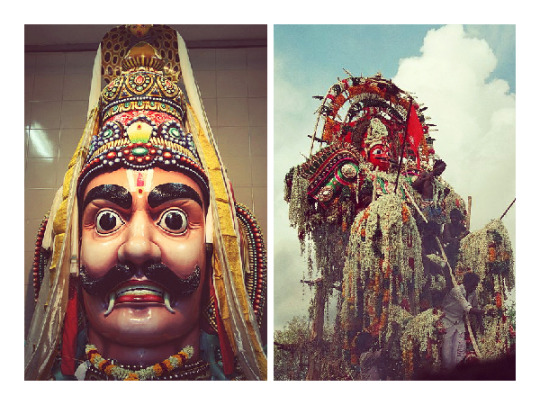
First, we have Aravan/Iravan (romanized) - who is also the patron deity of the transgender community. He is most commonly seen as a minor/village deity and is depicted in the Indian epic Mahabharata. Aravan is portrayed as having a heroic in the story and his self-sacrifice to the goddess Kali earns him a boon.
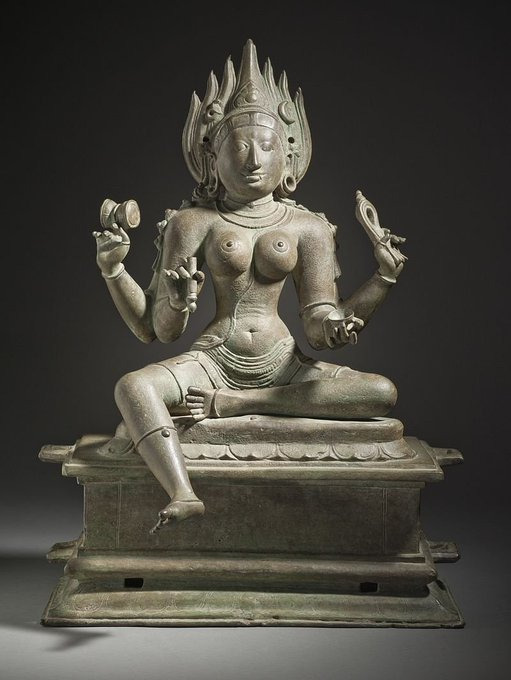
He requests to be married before his death. But because he is doomed to die so shortly after marriage, no one wants to marry him.
No one except Krishna, who adopts his female form Mohini (one of the legendary temptresses in mythology I've written about before) and marries him. It is through this union of male, and male presenting as female in the female form of Mohini that the seed of the Hijras is said to begun, and why the transgender community often worships Aravan and, another name for the community is Aravani - of/from Aravan.
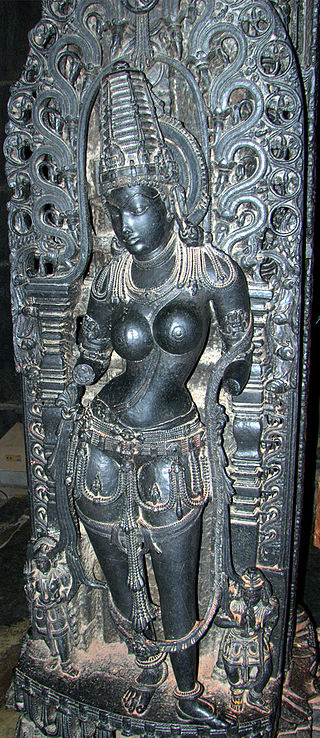
But that's not the only place where a gender non conforming divine representation can be seen. Ardhanarishvara is the half female form of lord Shiva, the destroyer god.
Shiva combines with his consort Parvarti and creates a form that represents the balancing/union between male/female energies and physically as a perfectly split down the middle half-male half-female being. This duality in nature has long been part of South Asian culture, spiritual and philosophical beliefs, and it must be noted the sexuality/gender has often been displayed as fluid in South Asian epics and the stories. It's nothing new.

Many celestial or cosmic level beings have expressed this, and defied modern western limiting beliefs on the ideas of these themes/possibilities/forms of existence.
Ardhanarishvara signifies "totality that lies beyond duality", "bi-unity of male and female in God" and "the bisexuality and therefore the non-duality" of the Supreme Being.
Back to the Hijra community.
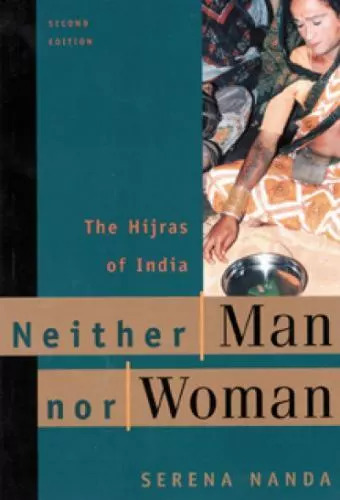
They have a complex and long history. Throughout time, and as commented on in the movie, Monkey Man, the Hijra community has faced ostracization, but also been incorporated into mainstream society there. During the time of the Dehli Sultanate and then later the Mughal Empire, Hijras actually served in the military and as military commanders in some records, they were also servants for wealthy households, manual laborers, political guardians, and it was seen as wise to put women under the protection of Hijras -- they often specifically served as the bodyguards and overseers of harems. A princess might be appointed a Hijra warrior to guard her.
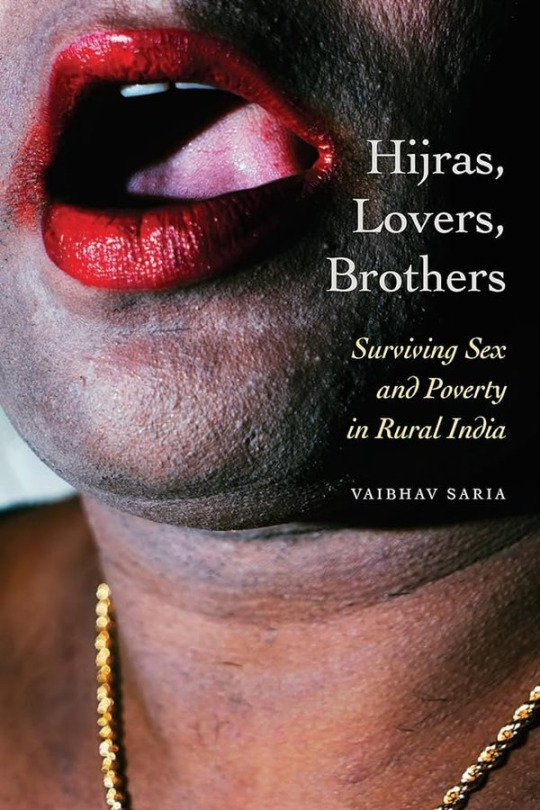
But by the time of British colonialism, anti-Hijra laws began to come in place folded into laws against the many nomadic tribes of India (also shown in part in Monkey Man with Kid (portrayed by Dev Patel) and his family, who are possibly
one of those nomadic tribes that participated in early theater - sadly by caste often treated horribly and relegated to only the performing arts to make money (this is a guess based on the village play they were performing as no other details were given about his family).
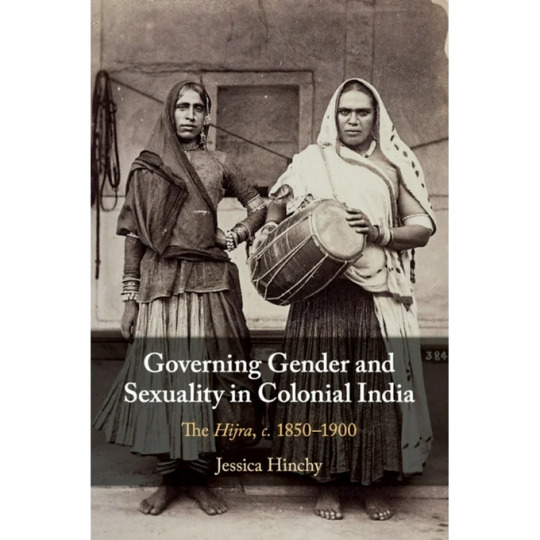
Hijras were criminalized in 1861 by the Indian Penal Code enforced by the British and were labeled specifically as "The Hijra Problem" -- leading to an anti-Hijra campaign across the subcontinent with following laws being enacted: punishing the practices of the Hijra community, and outlawing castration (something many Hijra did to themselves). Though, it should be noted many of the laws were rarely enforced by local Indian officials/officers. But, the British made a point to further the laws against them by later adding the Criminal Tribes Act in 1871, which targeted the Hijra community along with the other nomadic Indian tribes - it subjected them to registration, tracking/monitoring, stripping them of children, and their ability to sequester themselves in their nomadic lifestyle away from the British Colonial Rule.
Today, things have changed and Hijras are being seen once again in a more positive light (though not always and this is something Monkey Man balances by what's happened to the community in a few scenes, and the heroic return/scene with Dev and his warriors). All-hijra communities exist and sort of mirror the western concept of "found families" where they are safe haven/welcoming place trans folks and those identifying as intersex.
These communities also have their own secret language known as Hijra Farsi, which is loosely based on Hindi, but consists of a unique vocabulary of at least 1,000 words.
As noted above, in 2014, the trans community received more legal rights.
Specifically: In April 2014, Justice K. S. Radhakrishnan declared transgender to be the third gender in Indian law in National Legal Services Authority v. Union of India.
Hijras, Eunuchs, apart from binary gender, be treated as "third gender" for the purpose of safeguarding their rights under Part III of our Constitution and the laws made by the Parliament and the State Legislature. Transgender persons' right to decide their self-identified gender is also upheld and the Centre and State Governments are directed to grant legal recognition of their gender identity such as male, female or as third gender.
I've included some screenshots of (some, not all, and certainly not the only/definitive reads) books people can check out about SOME of the history. Not all again. This goes back ages and even our celestial beings/creatures have/do display gender non conforming ways.
There are also films that touch on Hijra history and life. But in regards to Monkey Man, which is what started this thread particularly and being asked to comment - it is a film that positively portrayed India's third sex and normalized it in its depiction. Kid the protagonist encounters a found family of Hijras at one point in the story (no spoilers for plot) and his interactions/acceptance, living with them is just normal. There's no explaining, justifying, anything to/for the audience. It simply is. And, it's a beautiful arc of the story of Kid finding himself in their care/company.
#hijra#trans representation#monkey man#dev patel#transgender#trans rights#trans rights are human rights#third sex#indian history#indian culture#colonialism#imperialism#south Asian mythos#South Asian myths#Aravan#Iravan#Mahabharata#hindu mythology#hindu gods#kali goddess#krishna#hindu mythology art#Ardhanarishvara#Shiva#Parvarti#sexuality#gender fluid#fluid sexuality#trans community#transgender rights
720 notes
·
View notes